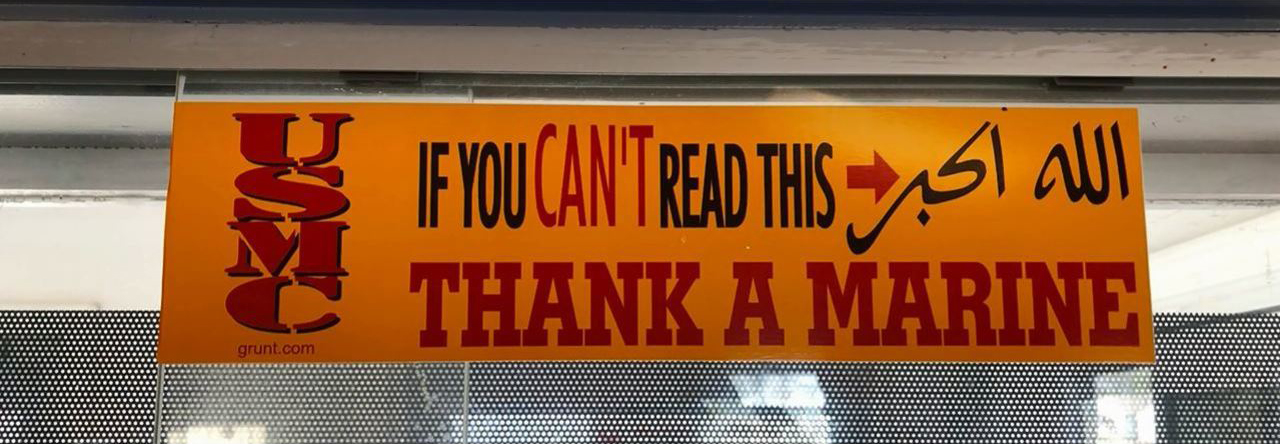The public house has always been a center for the exchanging of ideas in Western culture. Doubly so in the US where it became the hotbed for revolution. In Boston alone, the Sons of Liberty, Boston Committee of Correspondence and the Boston Caucus all met at the Green Dragon Tavern to plan and plot freedom for the colonies.
So, yea, pubs are important.
Yet it seems like politics are doing more bad than good for bars and restaurants nowadays. Every stance or action is a political stance which is bound to draw the ire from one group or another. It’s gotten to the point where a lot of operations are actively trying to stay out of politics. But it’s not so simple. Our culture to share ideas over a cold one definitely makes it hard, but it’s not the only reason.
Here are four big reasons why it’s hard to keep politics out of your restaurant.
Employee Rights/Benefits
It’s hard to shut doors on politics when your workforce is often the center of it. And we’re not talking about them wearing politically-charged clothing that you can easily create policies against. We’re talking things that directly affect their livelihood.
A lot of it revolves around staff compensation. Things like minimum wage, tipping/no-tipping policies, and benefits like sick time PTO, etc. And while we’re sure your staff cares a lot about their weekly take-home, a lot of these pressures are external. Whether you’re able to pay your staff livable wage, how well you treat your employees, and your stance on tipping can send ripples – for better or worse -- through your community.
But it’s not always about the money. Sometimes it’s just about the job itself. Robotic automation is gaining traction in the restaurant industry, meaning restaurants need fewer and fewer staff to provide service to guests. This has taken hold mostly in fast-food and fast-casual chains where guests can order (and pay) for their food via touchscreens or via mobile apps, but some more traditional restaurants have also tried variations of automation.
When changes threaten the existence of a workforce, people notice. They notice even more when that industry employs 14.7 million people nationwide.
Sexual Harassment
Considering how prevalent sexual harassment and assault is in the restaurant industry, it’s amazing there aren’t more news stories about it plaguing your staff. Count your blessings in that regard; few things will hit headlines and get people raging faster than news of improper sexual conduct being done by and/or to your staff.
The fact remains that sexual harassment and the social-political movements to stop it (#MeToo #TimesUp, etc.) were some of the biggest movements in 2017 and we don’t anticipate for that to slow anytime soon. And there’s no denying it’s a plague on our industry. From guests harassing staff to staff harassing staff,
While you can’t always stop it from happening, how you respond to the issues sends a clear signal to your staff and guests where your politics and morality rests. Do you take the allegations seriously and do something about it or do you write it off as “boys will be boys” and the cost of doing business? Your answer will inform your staff and guests a lot about the type of business you’re running.
ICE Raids
ICE Enforcement raids are on the rise (up roughly 40%) and they’re running into strong resistance from a few “sanctuary groups” on a state, city and business level. According to a 2008 Pew report, undocumented workers make up at least 10% of the hospitality industry. We’re looking at around 1.5 million people. That percentage goes even higher when we look to the kitchen where 20% of all back of house staff are undocumented immigrants.
In short: immigrants are a huge piece the restaurant industry. Plucking them out of jobs and sending them back whence they came doesn’t just happen without major ripples.
In Baltimore, 30 employees quit the day after an ICE agent visited a local restaurant. The owner defended his staff as all being vetted and legal and attacked the Trump administration for “targeting the Hispanic community.” An Asian restaurant in Mississippi ended with ICE detaining more than 50 people. And in Michigan in the summer of 2017, a group of ICE agents ate breakfast at a restaurant before arresting three of its workers.
From a business POV, it’s a huge disruption. From a moral and political standpoint, it’s tough to see people under your guard scooped up and shipped off. If ICE comes knocking at your door, what will your restaurant respond?
Making Outright Political Stands
While there are plenty of external forces pushing political matters through your door, sometimes we open it with welcome arms.
Several sports bars and restaurants vowed to not show any NFL games as long as the league allowed players to kneel during the National Anthem.
During the latest presidential election cycle, some establishments put up signs denying service to Trump or Hillary supporters. Others charged extra.
One DC restaurant hosted an event for a white supremacist group.
A beloved Brooklyn restaurant hosted an NRA fundraiser event.
There’s nothing wrong, of course, of exercising your First Amendment rights. But be prepared for some sort of backlash from either side of the political aisle. When you openly let the world know where you stand, you’re also inviting criticism through the door.














